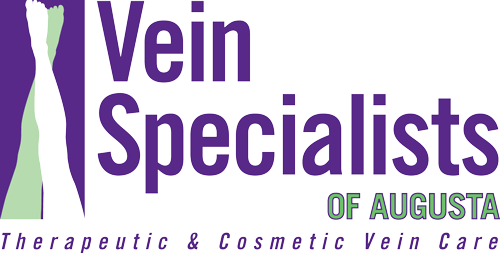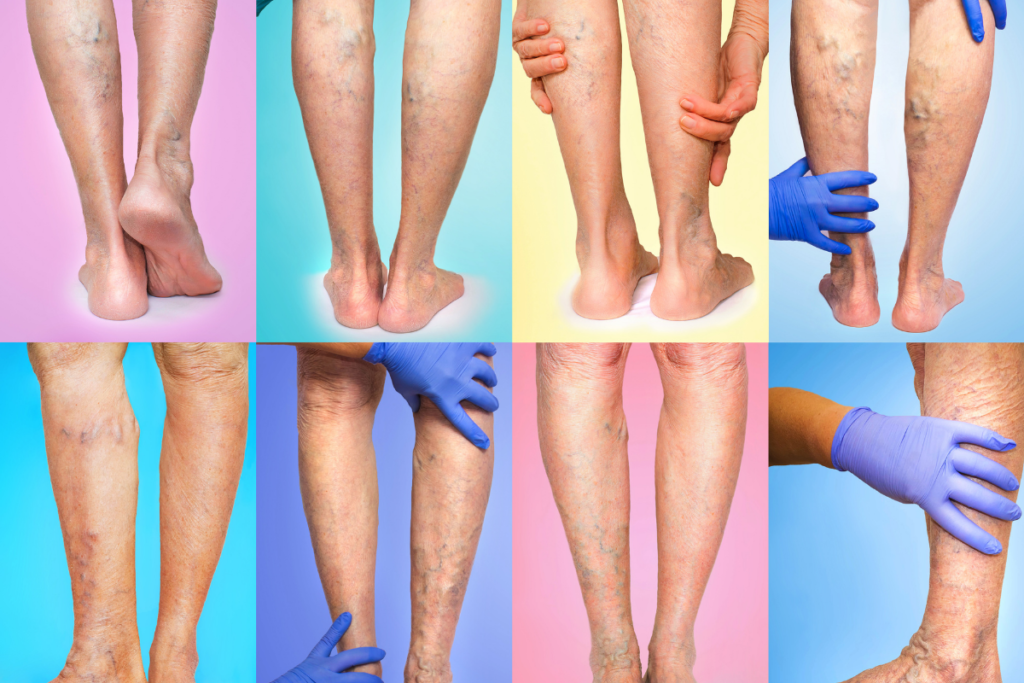Are varicose veins and spider veins the same thing? While they are both caused by malfunctioning vein valves, varicose veins and spider veins have a different appearance as well as several other differentiating factors. Distinguishing between spider veins and varicose veins is simple once you know what to look for.
Varicose Veins vs. Spider Veins: Similarities
Varicose veins and spider veins are similar in that they are both caused by the same thing: malfunctioning vein valves. Healthy vein valves prevent blood from pooling and circulating in the wrong direction. If a vein valve becomes damaged, the blood can flow backward, pool within the vein, or in some cases leak. Any of these circumstances can lead to the formation of either a varicose vein or a spider vein.
Varicose Veins vs. Spider Veins: Differences
The similarities between these two types of damaged veins stop there. The following can help you understand how varicose veins and spider veins are different.
Different Appearances
Varicose veins are usually large (up to several millimeters in diameter), long, twisted, bulging, and ropelike in appearance. They appear slightly blue tinged through the skin. Varicose veins that are close to the skin’s surface can be felt when rubbing the skin. They most often appear on the legs.
Spider veins are tiny (usually less than a millimeter in diameter), typically short, and look like little spiky spiderwebs or tree branches. They may be red, blue, or purple and most often appear on the legs, feet, or ankles. They can also form on the face.
Different Symptoms
Varicose veins may cause a feeling of heaviness, aching, and discomfort in the legs. Other common symptoms include swelling, throbbing, fatigue, burning, itching, and restlessness. In more serious cases, varicose veins can be accompanied by skin discoloration and skin ulcers. Varicose vein symptoms may worsen over time.
Spider veins rarely cause symptoms. It is not uncommon even for people with many spider veins to experience no symptoms at all. In some cases, spider veins may cause burning, itching, discomfort, or a feeling of heaviness.
Different Implications
Varicose veins tend to be more serious in nature. They can lead to blood clots, leg sores, and chronic venous insufficiency, each of which can have significant impacts on your health and quality of life. It is best to meet with a vein specialist to determine a treatment plan.
Spider veins rarely lead to other health problems. However, they can sometimes turn into varicose veins and may indicate other yet-unknown vein problems. A thorough evaluation with a vein specialist can help determine the potential risk of more serious vein problems.
Different Treatments
Individuals with varicose veins should seek treatment to eliminate symptoms and prevent future health problems. Conservative treatments include compression stocks and leg elevation. More invasive treatments include endovenous laser ablation (EVLA), VenClose procedure, VenaSeal™ medical adhesive, ambulatory phlebectomy, and occasionally sclerotherapy (usually reserved for spider veins). These treatments close the damaged vein, help prevent future complications, improve the appearance, and typically resolve existing symptoms.
Treatment for spider veins is usually considered cosmetic. The most common treatments include sclerotherapy and laser treatment. These treatments close the damaged vein, improve the appearance, and typically resolve any symptoms.
If you have either spider veins or varicose veins, it is important to get evaluated by a vein specialist. Getting treatment could save you from future health problems and expensive treatments later. Schedule an evaluation for a vein assessment, and we will help you restore healthy functioning veins with a more attractive and natural appearance.
For more information about the difference between varicose veins and spider veins, or to schedule a consultation with one of our vein experts, contact Vein Specialists of Augusta. Call 706-535-7551 or contact us online today to book your appointment with Dr. Sherman.
Submit your review | |

